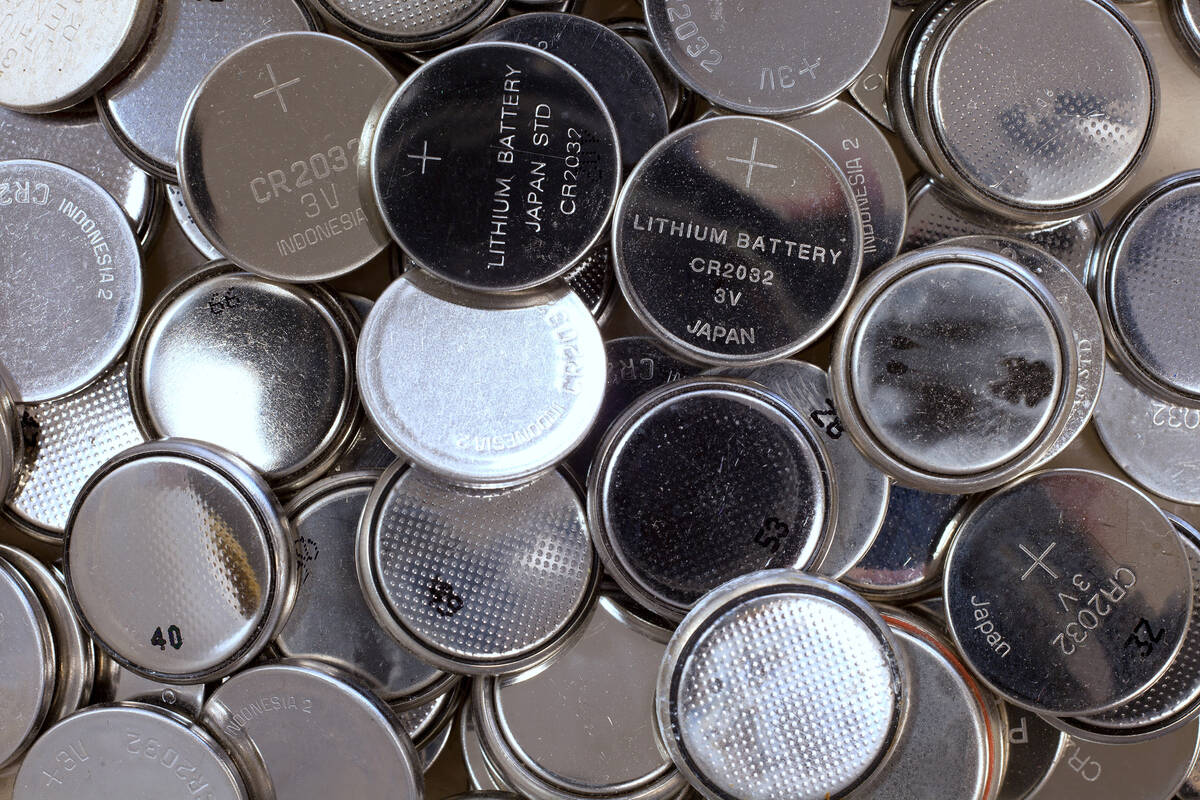How can parents protect young kids from coin batteries?

Question: My toddler often puts small objects in her mouth. How can I keep her safe with all the button batteries in our house?
Answer: The best way to protect kids from the serious injury caused by these kinds of batteries is by treating them the same way you treat other potentially deadly items in your home. Lock them up or limit your child’s access to them as much as possible.
Little kids often explore their worlds by putting things in their mouth, ears and noses. As a pediatrician, I’ve removed craft beads, pencil erasers, popcorn kernels and plastic toy bricks from kids’ noses and ears. I’ve answered calls from parents about kids swallowing paper clips, rocks and acorns. But button, or coin, batteries are very different.
When a battery comes in contact with a body fluid like saliva, it generates an electric current. That electric current can quickly burn tissues inside the body. In just two hours, lithium coin batteries can cause lifelong injury due to severe burns to the lining of the throat, esophagus, stomach, nose and ears. Nearby structures like the windpipe, lungs and large blood vessels can also be damaged. Even dead batteries that can no longer power a device can still cause serious trauma to children’s bodies.
Here are some helpful tips to prevent access to batteries:
1. Make sure battery compartments are secure. Soon, it will be required for new electronic devices to have battery compartments that are harder for kids to get into by requiring a screw to open, for example. But for now, common existing household items, like remote controls, may have battery compartments that open easily with a twist or break open when thrown. Consider taping battery compartments shut to be extra safe.
2. Store items safely. Store small battery-powered items the way you store your cleaning products and medications: out of reach and out of sight. For example, keep the remote control on a high shelf rather than the coffee table. Hang key fobs on high hooks. Put the electronic thermometer away in the medicine cabinet after use. Keep spare batteries on a high shelf in a secured box.
3. Get rid of old batteries right away. When changing the battery in a hearing aid, for example, be sure to wrap the old battery in paper or plastic tape. Taping the used batteries decreases the fire risk and helps prevent a child from swallowing them.
4. Trust your parental instinct. If you saw a loose battery on the table and you can’t find it later, that is enough of a suspicion. You may not hear any choking or coughing, and the child may feel fine at first. But the most important thing to do in this moment is to get your child to the emergency room immediately. There, if an X-ray confirms that a small battery is stuck inside the body, doctors can take steps to remove it.
As babies start to crawl and take their first steps, pediatricians recommend that parents childproof their homes. Baby gates can prevent falls down staircases. Outlet covers can prevent electrical injury. Locked cabinets prevent access to cleaning supplies.
Preventing kids’ access to small batteries is just as important. Awareness of their locations and vigilance about their storage and disposal are the key measures that parents should take to protect their children.
Dr. Christine Pagano practices primary care at a community health center in northern New Jersey.